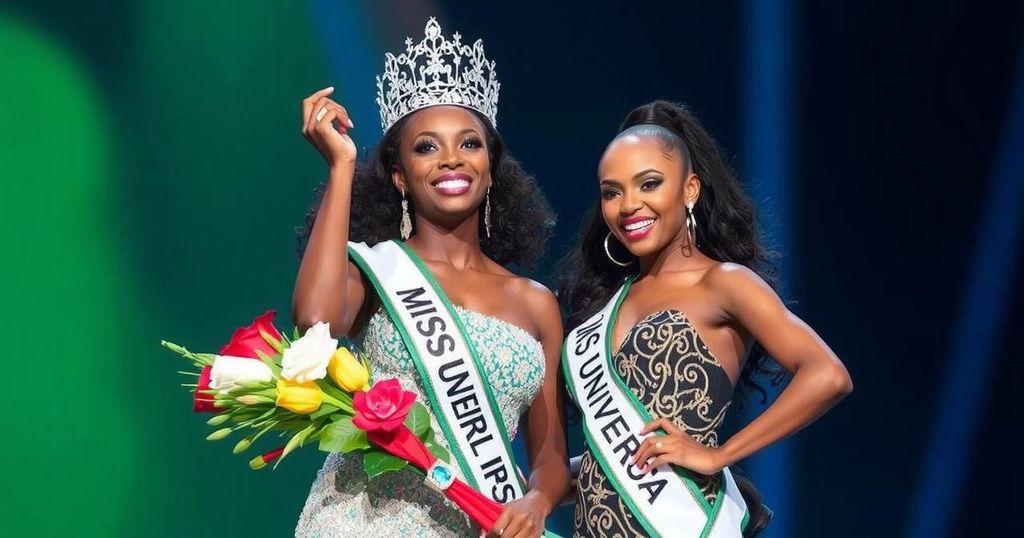Chidimma Adetshina: Celebrating Diversity and Resilience in Miss Universe Competition

Chidimma Adetshina, representing Nigeria, achieved second place in the Miss Universe competition and was named Miss Africa and Oceania. She faced xenophobic attacks while competing due to her Nigerian heritage and dealt with identity challenges from South African authorities. Adetshina expressed pride in her accomplishments while planning to seek therapy to address her trauma following these experiences.
Chidimma Adetshina, representing Nigeria, expressed immense pride in her achievement of securing second place in the Miss Universe competition, along with being honored as Miss Africa and Oceania. Shortly after the event, she reflected, “I’m so proud of myself and I just made history,” despite facing substantial challenges and xenophobic backlash during her journey. Originally a participant in the Miss South Africa contest, Adetshina encountered significant adversity due to her Nigerian heritage, which led to online trolling and accusations regarding her identification and nationality. Following unduly harsh scrutiny regarding her familial background, particularly allegations against her mother concerning identity fraud for South African citizenship, Adetshina transitioned to the Miss Nigeria competition after the South African authorities raised doubts about her nationality. Notably, her participation occurred amidst the backdrop of the withdrawal of the Miss South Africa contestant Mia le Roux from Miss Universe due to undisclosed medical issues. In a prior interview, Adetshina identified herself as both “proudly South African” and “proudly Nigerian,” underscoring her dual heritage. However, upon her recognition by Miss Universe South Africa via social media posts, she faced further backlash from some quarters of South African society that argued she did not accurately reflect their identity. In response to the trauma stemming from her experience, Adetshina announced plans to pursue therapy, acknowledging the psychological toll of her ordeal. Notably, she has emerged as the highest-placed black African woman in the competition since South Africa’s Zozibini Tunzi claimed victory in 2019.
Chidimma Adetshina’s journey within beauty competitions highlights ongoing societal issues surrounding race and identity in South Africa. Originally competing in the Miss South Africa contest, her Nigerian heritage catalyzed a torrent of xenophobic attacks, prompting her to relinquish her South African competition. Complications related to her family’s background, particularly regarding citizenship, raised discomfort and hostility from the public, resulting in her eventual participation in the Miss Nigeria pageant. The significance of her dual identity is emblematic of broader discussions about belonging and acceptance in post-apartheid South Africa.
In conclusion, Chidimma Adetshina’s journey exemplifies resilience against adversity and the complexities of national identity in a culturally diverse society. Her distinction as the second place winner at Miss Universe, and recognition as Miss Africa and Oceania, not only signifies her personal achievements but also amplifies critical conversations about representation and dignity amidst challenges. Adetshina’s intent to seek therapy for her experiences underscores the psychological impact of societal hostility, while her dual heritage reflects a deep-rooted sense of belonging that transcends borders.
Original Source: www.bbc.co.uk







